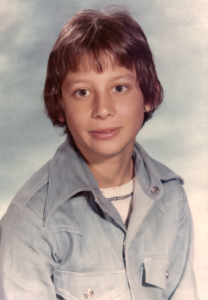Lindo? Linda?
Lindo Bacon, PhD
formerly LindaMy Name, My Gender
An excerpt from Radical Belonging: How to Survive and Thrive in an Unjust World (and Transform it for the Better).
From the Prologue:
It’s hard to be yourself and feel belonging in a culture that is hostile to your existence.
Think of someone you love.
I’m willing to bet that when you think about the people you cherish, it’s probably your dearest wish that they have access to every tool and opportunity possible to be themselves, be loved, and flourish in a welcoming world.
My parents wanted this for me. They wanted me to be loved and cherished. They wanted me to fit in and flourish.
That’s why they chose to name me Linda. Linda means beautiful, the “a” signifying female — facts I learned at my Bat Mitzvah, a Jewish ritual that marks the day a girl becomes a woman, at age thirteen. I’ll never forget my father’s speech. He was so proud, he told us, as my mother beamed at his side, of how I was living up to the name they had chosen for me.
Beautiful.
It was a magnificent, tender hope for my life. My success-oriented parents intuited, correctly, that feminine beauty is currency, a success lever in our society, and perhaps even a precondition for success — one that arguably overshadows character development and earned achievements. They believed (and everything in our world and their experience confirmed) that the main tool a girl needs is beauty. My parents’ hearts told them that femininity and feminine beauty would be the keys that unlocked hearts and doors for me. Like all parents with hearts full of love, they wanted that for me.
They wanted everything for me.
Naming me Linda was an aspiration, an invocation and a plan. Not that my parents had any ties to its origins, which are Spanish and Portuguese. Their disdain for Brown people, in fact, made this more an act of cultural appropriation than admiration. Yet, for them, the definition was powerful: I would be beautiful. I would be welcome in the world. I would belong.
There was, however, a flaw in that formula:
I was not a girl.
And femininity? Not my thing.

Little Lindo
From the Conclusion:
We’re in a kayak, paddling between banks of mangrove trees. Our guide is telling me about how he studied in Canada before coming home so he could preserve, share and teach his Mayan culture to visitors from within Mexico as well as tourists, like me, from other countries. Throughout the day we slow down or speed up to rejoin my partner and son, together in another kayak. There’s no one else in sight this entire day, as we slowly paddle through the canal, listening to stories about Mayan traders from a thousand years past, their boats loaded with salt, honey, cacao and dreams of wealth.
The four of us stop for lunch, snacks, and to explore areas he’s keen to show us or swim in an open lagoon. Our guide points out tree leaves and plants, describing their healing and culinary properties. He identifies the leaf his grandmother makes into a compress to reduce the sting from bug bites. He breaks off pieces for us to taste, enthusiastically sharing family recipes featuring individual plants.
Back in our little kayak together, talking about our lives, he asks about who Anne and Isaac and I are to one another. He hasn’t understood that we’re a family. I can feel him trying to figure us out — especially me. He asks questions and I don’t mind. We’re engaging with each other in an open-hearted, curious way.
His questions continue, and we get to talking about my name. My body, my gender, and my family might be confusing and warrant sincere questions; but my name, he understands. In Spanish, which he speaks fluently, “Linda” means beautiful. The ‘a’ at the end marks it as feminine — exactly why my parents chose it for me. Exactly why I struggle with it. When I look in the mirror I don’t read myself as ‘woman’. My friends and the people close to me tell me the same: that when they see me, I read as genderqueer, not a woman. One told me it was only the name on my books that indicated ‘woman’ to her, and not my physical presentation. All of which explains why my new friend might be curious about me, about my family, about my name. That ‘a’ on the end doesn’t seem to line up with the person in the boat with him; the connotation of feminine beauty just doesn’t resonate. And then, he has an a-ha moment. “You’re Lindo!” he exclaims, masculinizing the noun in Spanish. And he’s right.
When he explains that meaning takes on nuance with the masculinized ending, reflecting more of a beautiful essence rather than physical beauty, it seems even more right. I like the way it messes with constructions of beauty and gender.
Lindo. Yes, I am Lindo. There’s continuity there, a specificity I recognize. I can still be the beautiful human my parents dreamed of; I can still be my history, me. Just not the feminized version, because I was never a girl. I was never Linda, not really. But Lindo? Lindo, I recognize. This new name — that’s not new at all, just slightly, rightly different — feels like home to me.
Watch video My Pronouns